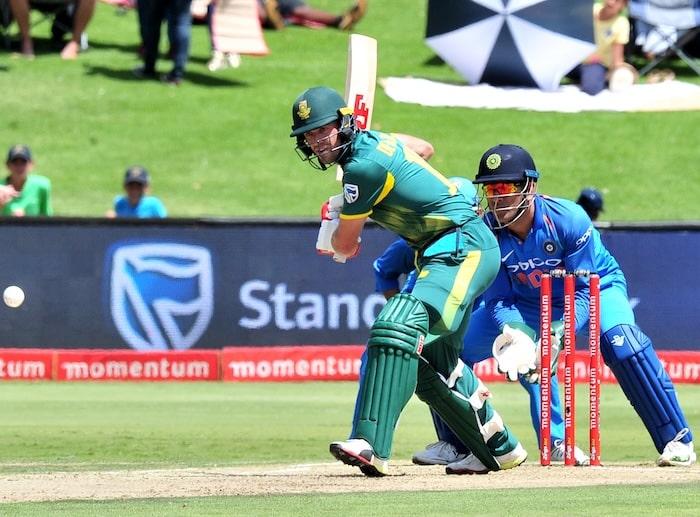Proteas legend AB de Villiers has been inducted into the ICC Cricket Hall of Fame.
De Villiers, who scored over 20,000 international runs over the course of a 14-year career and is regarded as one of the best fielders to have ever played cricket, created a lasting impression by adjusting to the ever-evolving nature and demands of modern cricket, including the introduction of the T20 format.
A standout performer in the game’s shortest format during its early years as an international format, de Villiers had the fastest-ever men’s ODI century, numerous ICC Men’s ODI performer of the Year Awards, and multiple selections to the ICC Test Team of the Year.
De Villiers was called up to open the batting for South Africa in a home series against England back in 2004 after making an impression in his first 16 first class matches in South Africa. He then moved back down the order and took up the gloves.
With an average of 40.22, an undefeated half-century in the second Test, and his first century in a Player of the Match performance in the fifth Test against an attack that had just months earlier defeated an all-conquering Australian lineup, he played a crucial role for the Proteas in the five-match series.
Few players can endure extended stretches of Test cricket while playing limited overs at a high pace. The mould is broken by AB de Villiers.
At the 2007 ICC Men’s Cricket World Cup, De Villers made his debut as an attacking player on the largest stage when he scored his first ODI century against the hosts, the West Indies, in a Super 8s match. He battled a combination of cramps, heat fatigue, and dehydration at the end of his knock.
Following successful one-day international matches, de Villiers made history at a global championship four years later by becoming the first South African player to reach two hundreds in successive innings at the same World Cup.
In June 2011, De Villiers assumed the role of captain for both T20I and ODI, and in his maiden assignment, he won ODI Player of the Series against Sri Lanka.
He led the team to a semi-final finish at the 2015 Cricket World Cup, scoring 482 runs at 96 with a strike rate of 2015, proving that extra responsibilities were not a burden.
De Villiers finished the tournament as the top-ranked ODI batsman in the ICC Rankings after hitting 162 off just 66 balls against the West Indies at the SCG.
However, at the same era, de Villiers was unwavering while facing the red ball and hardly ever endured a patch of emptiness. In Test cricket, de Villiers scored 18 of his 22 hundreds between 2008 and 2016, amassing 6001 runs at 58.26.
In 2008, he scored a century during South Africa’s victorious chase of 414 in Perth. In 2013, he became the first wicket-keeper to score a century and claim 10 dismissals in the same game when he played Pakistan.
In 2016, De Villiers briefly assumed the role of Test captain, although he continued to garner attention in all three forms.
His credentials were further highlighted by a scorching 176 (104) against Bangladesh in Paarl a year later in his career twilight, and a 21-ball fifty against England that same summer was the fastest by a South African at the time.
De Villiers set a record in Test cricket by going his first 78 innings without being removed for a duck.
The only Protean to surpass de Villiers’ 20,014 international runs was Jacques Kallis. De Villiers left international cricket in 2018 with a batting average of over 50 in both Test and ODI cricket.
De Villiers is considered one of the most inventive and devastating hitters in the modern game because of his ability to score all over the pitch with a wide variety of shots against all kinds of bowlers.
De Villiers was chosen for the 2010–2020 ODI and T20I Teams of the Decade and won the ICC Men’s ODI Player of the Year award three times (in 2010, 2014, and 2015).
Additionally, he was selected as the 12th player in 2012 and was named to the ICC Test Team of the Year four times.
Few players of today and future will be able to replicate de Villiers’ individual success in all three formats, but many will want to do so.





